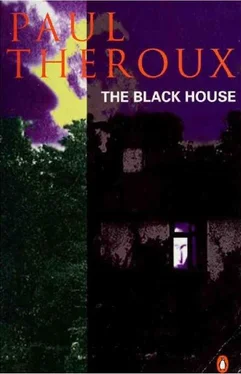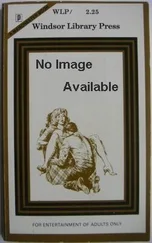Paul Theroux - The Black House
Здесь есть возможность читать онлайн «Paul Theroux - The Black House» весь текст электронной книги совершенно бесплатно (целиком полную версию без сокращений). В некоторых случаях можно слушать аудио, скачать через торрент в формате fb2 и присутствует краткое содержание. Год выпуска: 1996, Издательство: Penguin Books, Жанр: Современная проза, на английском языке. Описание произведения, (предисловие) а так же отзывы посетителей доступны на портале библиотеки ЛибКат.
- Название:The Black House
- Автор:
- Издательство:Penguin Books
- Жанр:
- Год:1996
- ISBN:нет данных
- Рейтинг книги:4 / 5. Голосов: 1
-
Избранное:Добавить в избранное
- Отзывы:
-
Ваша оценка:
- 80
- 1
- 2
- 3
- 4
- 5
The Black House: краткое содержание, описание и аннотация
Предлагаем к чтению аннотацию, описание, краткое содержание или предисловие (зависит от того, что написал сам автор книги «The Black House»). Если вы не нашли необходимую информацию о книге — напишите в комментариях, мы постараемся отыскать её.
The Black House — читать онлайн бесплатно полную книгу (весь текст) целиком
Ниже представлен текст книги, разбитый по страницам. Система сохранения места последней прочитанной страницы, позволяет с удобством читать онлайн бесплатно книгу «The Black House», без необходимости каждый раз заново искать на чём Вы остановились. Поставьте закладку, и сможете в любой момент перейти на страницу, на которой закончили чтение.
Интервал:
Закладка:
“It’ll be nice to be in London again,” said Emma. “I’ve got so much shopping to do.”
“It’s a bit raw,” said Munday.
Emma looked out the window. She said, “I really, don’t want to go back.”
Munday wondered how he might console her. Nothing came to him. He said, “The day-retum fare is damned cheap.” Then after a while, “They pinched one of my daggers.”
“Depressing people.”
“I’m glad you finally agree with me.” He thought again of the man in the field. He said, “I’m finished,” and pushed his plate aside.
They paid the bill, and the car filled up, but they did not go back to their compartment immediately. They lingered, enjoying the warmth, the breakfast smells of bacon and coffee and the pipe smoke of a man at the next table. The train lurched, gathering speed, cups chinked and the hanging folds of the white tablecloths moved like skirts. Trees and bushy embankments shot past the window. Munday played with the heavy silver. Near Salisbury the landscape opened; it was flatter and the fields they passed seemed to revolve, roughly circular furrows spinning on the skid of the train.
“What about lunch?” asked Munday.
“I’m meeting Margaret at Selfridge’s. We’ll have lunch somewhere, then spend the afternoon together shopping.”
“I can’t imagine her without those sunglasses and sandals.”
“And that yellow cotton dress,” said Emma.
“What’s Jack doing?”
“She says she doesn’t hear from him.”
“Such a scandal there,” Munday said. “All that excitement. Here it seems so ordinary and stupid.”
“W'ill you be seeing Silvano?”
“No time for that. My appointment’s at eleven-thirty.” He looked at his watch. “I’ll just make it And Alec said he’d be at the Wheatsheaf at one. It’ll be good to see him. The last train’s just after seven. Why don’t we meet at that pub in the station at quarter-to?”
“I wish we didn’t have to go back so soon.”
At Salisbury they groped their way to their compartment and found four people in it, but the newspaper and book remained on the vacant seats next to the windows. They watched the people on the platform, some mothers with large clean children, an older woman who looked like any of the ones in the church hall at Four Ashes except that she was distinguished by a copy of the orange Financial Times, rolled like a truncheon in her string bag. Most were women dressed for restaurant lunches, with the soberly elegant clothes that women wear to impress other women, rather than attract men: large hats, gloves, some with neat, damp corsages; they boarded in groups of three and four. One of these entered the Mundays' compartment; she sat smiling and waving discreetly to a woman squeezing down the passage. She had a copy of the Telegraph, which she read in glances, folding it and turning it inside out. The windows steamed up, and this woman perfumed the small space with lavender. Near Woking there was a sign saying stop coloured immigration in neat square letters on a brick wall next to the track. A Daily Express lay on the single empty seat.
It was retrieved by a thin man in a blue nylon jacket when the train drew in to Waterloo.
In the main hall of the station, dangerous with little yellow vehicles towing baggage carts and vibrating with the ponderous throb of announcements of train times and place names, none of which was distinct, Munday showed Emma the pub he had mentioned, and standing near it he thought he recognized the black man he had addressed in Swahili. They parted on the Bakerloo Line, Emma got off at Oxford Circus, Munday continued to Regent’s Park where he walked in a fine drizzle to Harley Street.
The receptionist was prompt; he had introduced himself as Doctor Munday, and though there was another man in the waiting room she said to follow her. She led him down a corridor, past framed eighteenth-century cartoons—one of a toothy man falling violently and spouting a bubble of script caught Munday’s eye. The doctor’s office resembled a study. There was a wall of leather-bound books, a large dark painting of a highland scene, and heavy green curtains. The desk was wide and held a silver inkstand, and the stethoscope which rested on the blotter was the only indication of the work of the dark-suited man who sat fingering it. He rose as Munday entered; the receptionist introduced them, then went out, shutting the door.
“So you were Dowle’s patient,” said the doctor, motioning Munday to a chair. “He wrote me about you. How is he?”
“Just the same,” said Munday. “Full of bluster, and absolutely punishing himself with whisky. They have a new cook at the mission, a Polish priest named Pekachek—mad about cabbage.”
“Dowle and I were at medical school together.”
“So he told me,” said Munday. “Old Father Tom.”
“That what they call him? He was a lad, he was— the last person in the world I’d have thought to go into the priesthood.” The doctor winked. “A great one for the ladies, you know. I suppose with these black women he’s not in any danger of breaking his vow of chastity.”
“Some can be quite lovely.”
“You’ll have a hard time convincing me of that,” said the doctor.
“I don’t intend to try,” Munday said evenly. He would not be provoked. It was a vulgar subject—and anyway he had never himself made love to an African woman: it would have put his research at risk. But something else prevented him from discussing the matter any further with the doctor. He saw himself repeatedly cast in the role of defender of Africans—with Flack, with the vicar, with the pompous spokesman in the church hall. He defended Africans by inverting the abusive generalities, until he had found himself saying things he didn’t mean. What he knew of the real weaknesses of Africans he would withhold from these ignorant sceptics who didn’t deserve to know.
“I see the wives of some of these black high commissioners. West African, I should think. Great big bottoms. They never pay their bills, but if I refused to take them on they’d complain to the minister.”
“And they’d be quite right to complain,” said Munday. He added, “But I agree—they should pay their bills.”
“Tell them that,” said the doctor, who had become noticeably less friendly. With a hint of impatience he said, “All right, let’s have a look at you.”
He examined Munday thoroughly, running the cold smooth disc of the stethoscope over his chest and back. Then he wrapped a thick rubber bandage around his bicep and inflated it with a bulb. Munday felt his forearm tingle and his hand go limp. The doctor took that off and asked Munday to squeeze his extended fingers. Munday squeezed.
“Harder,” said the doctor.
Munday got a better grip on the doctor’s fingers and clutched them tightly until his own fingers turned white.
“Fine,” said the doctor. “Dowle said something about a stroke.”
“It surprised me,” said Munday. “I’d always been fit. It was after a large meal. I felt pretty ropey—had a pain here,” he said, touching his chest. “My wife said I had awful color and I was gasping—couldn’t get my breath.”
“Sounds an awful lot like indigestion,” said the doctor with scorn.
Munday winced. “Your friend Dowle called it a seizure.”
“Sometimes they happen like that. It’s hard to tell. Your blood pressure’s a little above normal, and I thought I heard a slight flutter. But that’s not so unusual.”
“Father Dowle said something about a scar on one’s heart.”
“ ‘Knickers,’ we used to call him,” said the doctor, smiling, and the statement mocked at the mission doctor’s diagnosis. He pointed at Munday. “The heart’s a tough organ, you know—it’s a great pumping device. There might have been a constriction, a kind of blockage. It can kill you by pinching off the blood flow, or the heart itself can repair the damage. It leaves scar tissue, that’s all he meant. How do you feel? Any discomfort?”
Читать дальшеИнтервал:
Закладка:
Похожие книги на «The Black House»
Представляем Вашему вниманию похожие книги на «The Black House» списком для выбора. Мы отобрали схожую по названию и смыслу литературу в надежде предоставить читателям больше вариантов отыскать новые, интересные, ещё непрочитанные произведения.
Обсуждение, отзывы о книге «The Black House» и просто собственные мнения читателей. Оставьте ваши комментарии, напишите, что Вы думаете о произведении, его смысле или главных героях. Укажите что конкретно понравилось, а что нет, и почему Вы так считаете.












